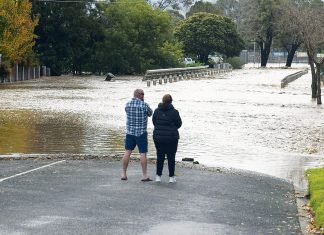A $128 million State Government package for Victoria’s embattled out-of-home care system has been welcomed as a good “first step” in improving the crisis in confidence gripping the residential care sector.
However, child protection stakeholders have warned it is a far cry from the ‘game changer’ the government claims it to be, who argue Victoria’s fostering system will remain under threat of collapse despite the package’s measures.
Announcing the plan on Tuesday, Community Services Minister Mary Wooldridge said the package would roll out 48 new residential care beds and 48 new therapeutic residential placements over the next five years.
In an additional effort to divert strain away from the residential care sector – rocked by recent reports of children exposed to organised sexual exploitation – 100 new therapeutic home-based placements have also been announced to strengthen foster and kinship arrangements.
While it is unclear how the extra care beds and provisions will be distributed across the state, it is hoped Gippsland’s disproportionate rates of out-of-home care will be recognised in the rollout.
Gippsland director of at-risk child support agency Berry Street Trish McCluskey, a former child protection worker of about 20 years, welcomed the five year package, however preempted a decade of reform was still needed to overhaul the sector.
She said while $18.2 million set aside in the package to provide developmental support for foster and kinship carers was a welcome start, significant government intervention was needed to shift the reliance away from residential care sector to fostering arrangements.
“Residential care is massively expensive and those kids don’t have the experience of intimacy that a family brings, so as much as possible we need to move towards using more foster families, but to do that we need to pay and resource those families adequately,” Ms McCluskey said.
The package announcement came only a day before the tabling of the Victorian Auditor General’s Report into Residential Care Services for Children in parliament yesterday, which depicted a system over-capacity, buckling under the weight of its own demand.
The report found the number of children in out-of-home-care had increased by 60 per cent in the last 10 years, the number in residential care had grown 10 per cent during the same period, while children with “increasingly complex” needs were on average staying longer in residential care, placing considerable pressure on the system.
“I’ve been around for long enough in this field to know this is a very significant start to some very major reforms needed to happen over the next decade, but we really need to start shifting the focus in care provision,” Ms McCluskey said.
“But given the rate foster carers are leaving the force in Victoria we need to look at the way we (could) professionalise the industry to make sure they are paid and reflect at least the rest of Australia, and this package doesn’t address that.”
Ms McCluskey said a foster carer in New South Wales would receive between 80 and 100 dollars more per week in reimbursement payments than Victorian counterparts.
“Victoria has some very antiquated and unresolved issues – there’s been a number of reports into the system over the years about this, but government has been very slow to respond, which is very concerning,” she said.











